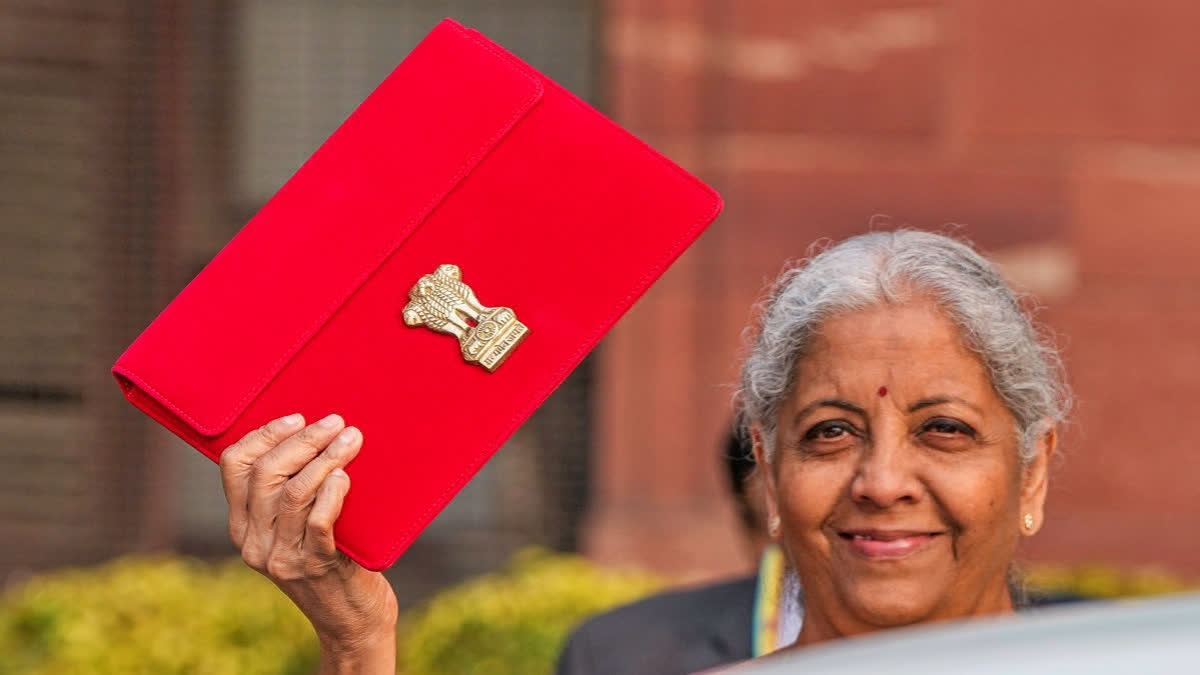New Delhi: Customs duties have been amended drastically in the Union Budget 2025, affording general industrial and important items a price relief while charging import duties on some. The budget is set to propel domestic manufacturing, help critical industries, stimulate economic growth and effect fiscal consolidation.
The budget takes a strategic approach to balance economic growth, domestic manufacturing, and fiscal stability. While the reduction in duties on essential goods, renewable energy, and critical minerals is expected to boost industrial development and consumer benefits, the increase in import duties on luxury and non-essential items aligns with the government’s push for 'Make in India' and self-reliance. Industry leaders have largely welcomed the budget, highlighting its focus on healthcare, job creation, and economic resilience.
Experts' take
Vijay Shankar, Vice President of FICCI, appreciated the tax relief from this budget and its focus on economic growth. In a talk with ETV Bharat he said, "The biggest announcement from the budget for the middle class has been the income tax reduction. I think no income tax up to ₹12.75 lakh is a fantastic move that will put more money in the hands of the public. This will boost spending, drive demand and spur capacity creation. It's a well-thought-out strategy." He further stressed the government's commitment to fiscal consolidation and economic stability, "Despite a slowdown, the government has ensured India stays strong, following the fiscal deficit reduction path. The focus on cancer treatment, skilling initiatives, MSME sector revisions, and employment generation will drive sustainable growth."
Dr Ranjeet Mehta, CEO & Secretary General, PHDCCI, told ETV Bharat, "We really appreciate the government’s initiative to reduce customs duty on life-saving drugs. This will make healthcare more affordable and accessible for all. The increase in customs duties on plastics and solar glass may create challenges for the packaging industry and other consumer product sectors. We hope the government will reconsider this."
What's cheaper
1. Mobile Phones and Electronics
The basic customs duty (BCD) on inputs/sub-parts for mobile phone components including camera modules, connectors, wired headsets, microphones, USB cables, and fingerprint sensors, has been brought down from 2.5% to nil. At least 28 more goods required for mobile phone battery production are on the list of exempted capital goods. The BCD on open cells and components for LCD and LED screens has been reduced to 5%.
2. Medicines and Healthcare
36 life-saving medicines and drugs are on the list with full exemptions from BCD. Oncological conditions were focused on through import duty exemptions on essential cancer medicines and the establishment of cancer care centres across over 200 districts.
3. Renewable Energy and Critical Minerals
The duty-free import of critical minerals includes cobalt powder and lithium-ion battery scraps as a measure to further push clean energy production. Drastic cut down on import duties for solar PV cells, controllers, wind turbines, high-voltage transmitters, and batteries.
4. Marine Sector and Fisheries
The framework to give a boost to marine industries, particularly in Andaman and Lakshadweep, is now in vogue. The BCD on fish paste was reduced from 30% to 5%; frozen fish from 30% to 5%, while fish hydrolicers went from 15% to 5%.
5. Leather and Textiles
Wet blue and crust leather, exempt from BCD. A new mission to increase cotton productivity for sustainable farming and promotion of extra-long staple cotton varieties.
6. Shipbuilding and Manufacturing
Raw materials for building ships have been exempted for BCD within 10 years. Customs duty on rapier looms and air jet looms in the textile sector was reduced from 7.5% to nil.
7. Other Sectors
